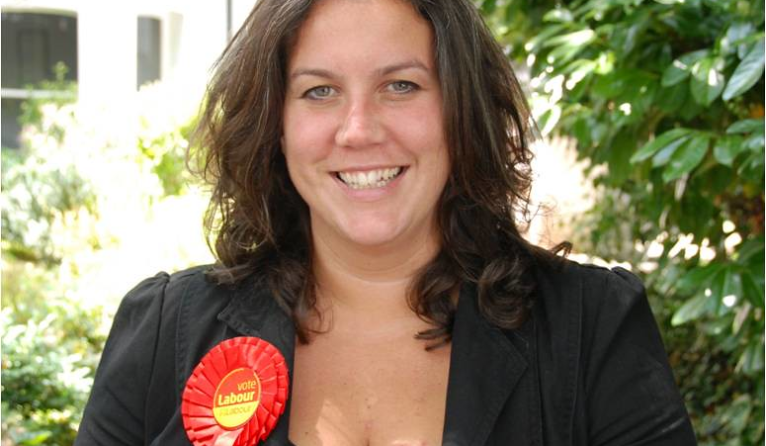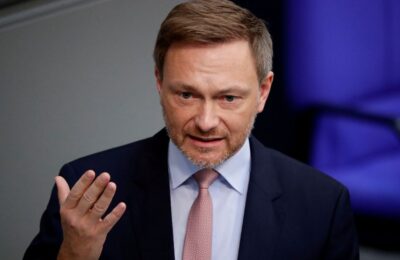Via Labour Hub

Silvertown Tunnel enforcer Heidi Alexander takes over as Transport Secretary – let’s adjust our battle plans
By Simon Pirani
The danger that big road and aviation projects will trash climate targets looms larger, with the appointment of Heidi Alexander as Transport Secretary.
Alexander was London’s deputy mayor for transport between 2018 and 2021: her biggest ‘achievement’ was to help force through the carbon-heavy Silvertown Tunnel project, in the teeth of local opposition.
The tunnel, a four-lane motorway under the Thames a few metres east of the Blackwall tunnel, is due to open next year.
More roads produce more traffic – and so the tunnel will push London still further away from its own inadequate climate targets, let alone targets proposed by climate scientists. And it will exacerbate lethal air pollution, especially in Newham, which is among the city’s most poverty-stricken boroughs.
Here is a cautionary tale about the cynical greenwashing used by Alexander, and the Mayor, Sadiq Khan, to justify the tunnel. I can tell it first-hand, as I was active in the Stop the Silvertown Tunnel coalition, which sought to unify, and give voice to, local opposition to the project.
The key chapter of the story starts in 2018, when a “climate emergency” was declared by the Greater London Authority, along with the UK Parliament and many other local government bodies.
This was a reaction to the wave of protests, by school pupils (Fridays for Future), Extinction Rebellion and others, against governments’ failure to address the climate crisis.
For years before this, a determined group of south-east London residents had doggedly challenged the proposals for a new tunnel. They took their case to a public inquiry in 2016, and lost it. The explosion of climate action in 2018 breathed new life into the campaign.
London Living Streets, the London Cycle Campaign, Mums for Lungs, the Ella Roberta foundation and many others had already called on the Mayor to scrap the tunnel. So had Hackney, Southwark and Lewisham councils, most local Labour parties, the Greens and Liberal Democrats in the London assembly, and local MPs. Now trade unions, doctors and NHS staff, residents’ associations and others joined in.
Our coalition thoroughly debunked the “elaborate fiction” of Transport for London’s paperwork, which presented as “minimal” the impact of the procession of HGVs the tunnel will attract.
In July 2019, Alexander was invited to a packed community meeting about the tunnel, organised by Speak Out Woolwich, but neither showed up nor sent anyone in her place. As opposition grew in the Greenwich Council Labour group, she sneaked in a side entrance of the town hall to harangue them, rather than engage with protesters asking to speak to her at the front.
Alexander never met most of the tunnel’s opponents, even the climate scientists and transport researchers who wrote to City Hall calling for a rethink – and only found time, in August 2019, for a 40-minute meeting with a tightly-restricted group of us.
Alexander arrived, clearly unfamiliar with the briefing material compiled by climate scientists, and used a good number of those minutes explaining that the tunnel was needed to overcome traffic congestion at the Blackwall tunnel.
We said there were many other ways to solve that problem. It has stuck in my memory that, when I said that the queues at Blackwall were often of single-occupant vehicles, and that could be worked on, she responded, “Well, that’s the way people live” – as though this made a £2.2 billion climate-trashing project inevitable.
Alexander dismissed our research-based, courteously delivered argument that building new roads is incompatible with tackling climate change. And bad-mouthed us in the local press.
Four months later, TfL awarded a contract to the Riverlinx consortium to build and operate the tunnel. Then came the Covid-19 pandemic, and, as public actions became more difficult to organise, we started a letter-writing campaign, urging City Hall to reconsider.
Alexander replied to each letter with a standard response, which claimed inaccurately:
(1) That the GLA had adopted “zero carbon goals”. (In fact the Zero Carbon London plan assumed that by the target date, 2050, London would emit between 3.4 and 6.9 million tonnes per year of greenhouse gases. That is not zero. And of course it takes no account of “embedded” emissions in imported stuff.)
(2) That the modelling on which the GLA’s carbon reduction trajectory was based took into account planned infrastructure developments, including the Silvertown tunnel. Actually there was no correlation. The modelling that was done for the tunnel started from the false premise that building it would not result in any extra trips across the Thames.
(3) That the GLA carbon reduction trajectory had been “independently assessed” by C40 Cities, the alliance of global cities. In fact the C40 assessment, compiled by Arup, a £2 billion-a-year engineering consultancy, said only that the GLA’s trajectory aligned with other trajectories published by C40, also compiled by Arup. (And don’t forget that all these trajectories were general, indicative pictures, without any detail on the impact of infrastructure projects.)
The impression given, that there had been some sort of ‘independent’ scrutiny, was false. Arup’s managers perhaps had a good laugh about that.
In September 2021, I brought a complaint against Alexander under the GLA Code of Ethics and Standards, which claims adherence to the Nolan Principles on conduct in public life. I wanted the GLA to write to those who had been sent this misleading information, and provide them with correct information.
In June 2022, David Bellamy, City Hall’s chief executive, asked me to drop the complaint, on the grounds that Alexander had now left City Hall (to go to Swindon, where she became Labour’s prospective parliamentary candidate). I said no.
The complaint was elevated to Stage 2 of the procedure, and was to be dealt with by Mary Harpley, GLA Chief Officer. She told me it would be sorted by September, and then by November. After that, I suppose, the complaint was binned – an egregious breach of the GLA’s own procedures.
Harpley did not reply to my emails and her office staff who answered my phone calls sounded perplexed and embarassed.
I flattered myself to think I had touched a raw nerve with the complaint about Arup’s supposed “independent assessment”. But perhaps this is just the standard City Hall approach to members of the public who complain about politicians’ falsehoods. Or maybe it reflected the Labour establishment’s chronic discomfort with anybody who questions their ‘green’ credentials – even if it’s the Mayor of Newham, Rokshana Fiaz.
In January 2022, London Mayor Sadiq Khan announced that he was adopting a still more ambitious plan to make London “net zero” by 2030.
Consultants commissioned by City Hall said that, to have the slightest chance of meeting the new targets, the volume of road traffic in the capital (measured by vehicle-kilometres driven) would have to come down by between 12% and 40%.
Researchers at Imperial College, who used climate scientists’ targets rather than City Hall’s own, argued the reduction in vehicle traffic would have to be, roughly, on twice that scale.
In nearly three years since then, not a finger has been lifted to reduce traffic volume. The Silvertown Tunnel, London’s biggest infrastructure project since the Elizabeth Line, will make things worse.
Our coalition continues to urge that alternative uses – such as public transport, cycling and walking – be found for the tunnel, rather than for HGVs and cars. And some of us are working towards a more socially just, less toxic transport system in the Fare Free London group.
On a national level, the transport sector is the one where the government, the Climate Change Committee and others agree that the least progress has been made to decarbonise.
The Transport Action Network has called on the government to junk the programme of road-building put together under the Tories, and invest heavily in public transport, rail and active travel.
What will happen now that Louise Haigh has been replaced as Transport Secretary by Heidi Alexander?
(By the way: the misdemeanours that led to Haigh’s resignation are vanishingly small, in my view, compared to supplying a genocidal regime headed by suspected war criminals with arms, as the senior ministers are doing, or even with circulating inaccurate information about climate policy – a life and death issue – as Alexander did.)
The government has already made clear its determination to champion economic “growth”, whatever the cost in terms of greenhouse gas emissions.
In August it approved the expansion of City airport (with which the Silvertown tunnel is connected, as traffic from the airport will use it), at a time when no airport should be expanding. There are rumours in Labour circles that ministers may try to revive the Heathrow third runway project.
Is there also a danger that the Lower Thames Crossing, a 14-kilometre, six-lane monstrosity at the Medway, will be approved? Louise Haigh was due to decide on this by October, and pushed that deadline back to May next year.
It will now be on the desk of a minister who apparently refuses to believe that more roads produce more traffic. Or that climate scientists are best-placed to advise on the effect of infrastructure projects on climate targets. Or that members of the public deserve to be treated with respect.
I honestly do not take this as a reason to despair. But it is reason for social movements and people who care about climate change to think hard about what we can expect from this government. And adjust our battle plans accordingly.
Simon Pirani lives in Woolwich, is an honorary professor at the University of Durham, and writes a blog at People and Nature here.



